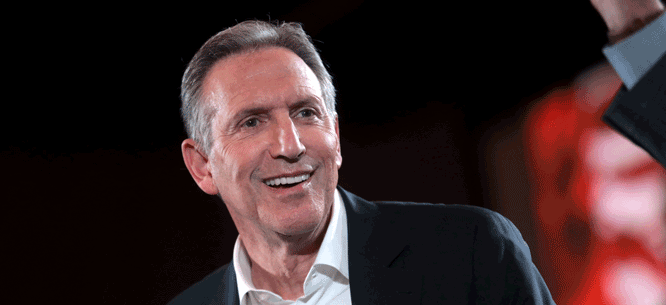Beat the Rich
Beat the Rich
Any hope of creating economic democracy has to name enemies and hold them up to scorn. Bashing aspiring plutocrats is a necessary place to start.

Howard Schultz and Ken Griffin have been giving billionaires a bad name. Schultz, who became a celebrity selling overpriced coffees gentrified with Italian labels, quickly morphed into an arrogant fool who thinks his riches somehow qualify him to be president. The lesser-known Griffin recently plowed $238 million of his hedge-fund earnings into a future penthouse overlooking Central Park that will be the most expensive home in U.S. history. The Republican donor is also having a mansion built in Palm Beach, Florida, that will cost at least $10 million more.
Not so long ago, many Americans would have reacted to these two characters with a mix of awe and envy. But since the financial collapse a decade ago, the notion that “greed is good” is more likely to draw disdain than a smile. In January, a national poll found a clear majority supporting the idea of doubling the marginal income tax rate on the richest among us to seventy percent. A society that “allows billionaires to exist” while some Americans live in poverty is “immoral,” declared Rep. Alexandra Ocasio-Cortez, who proposed that hefty hike in revenue during her very first week in Congress.
The suspicion of people with extreme wealth is not just a moral sentiment. It has always been essential to gaining mass support for reforms that made the United States a somewhat more decent society. Images of haughty industrialists sporting silk hats and diamond stick-pins helped inspire the progressive income tax and regulations on big banks and railroads. Disgust at the moneyed speculators who touched off the Great Depression lit a spark that fired up the New Deal and emboldened the labor upsurge led by the CIO. After Franklin Roosevelt blasted “economic royalists” in his 1936 acceptance speech, he scored one of the greatest landslides in American history.
By itself, this sentiment will raise no taxes on the rich, win workers no seats on corporate boards, enact no curbs on private donations to campaigns, pass no component of a Green New Deal. Both the left and the labor movement are still too weak to take full advantage of the shift in public opinion. And an appalling billionaire got elected president by spouting a brand of populist rhetoric and will run for re-election by doing so again. But any hope of creating economic democracy has to name enemies and hold them up to scorn. Bashing aspiring plutocrats like Schultz and Griffin is a necessary place to start.






